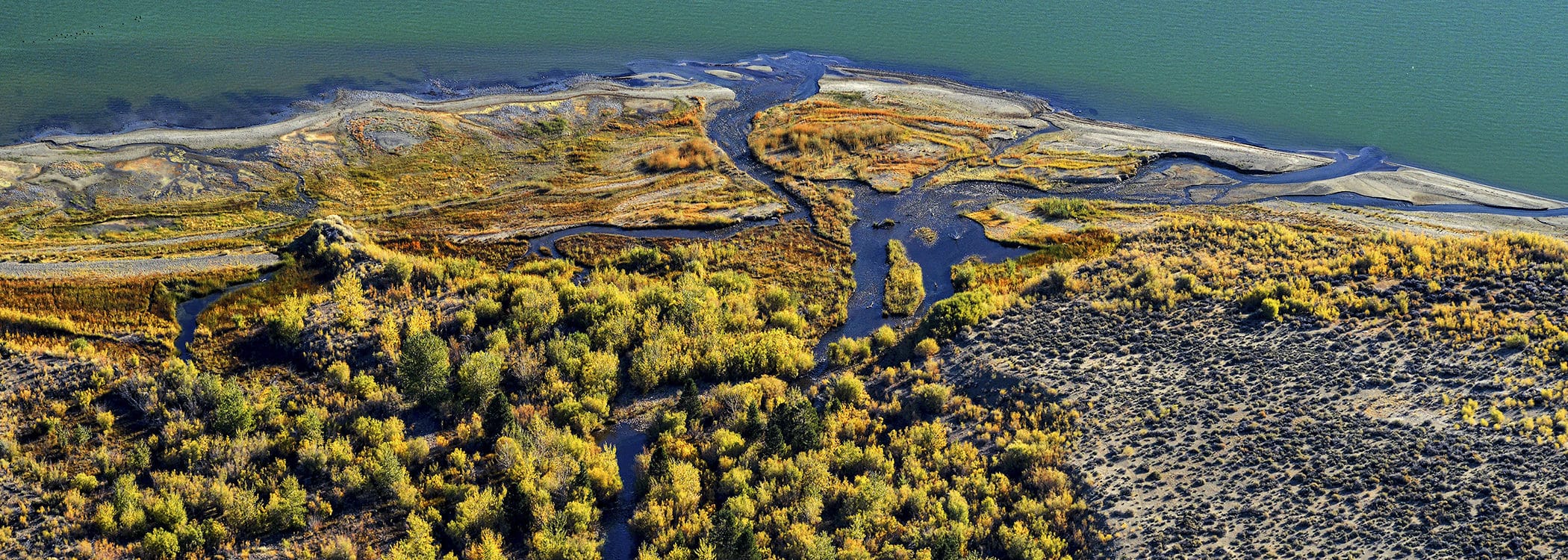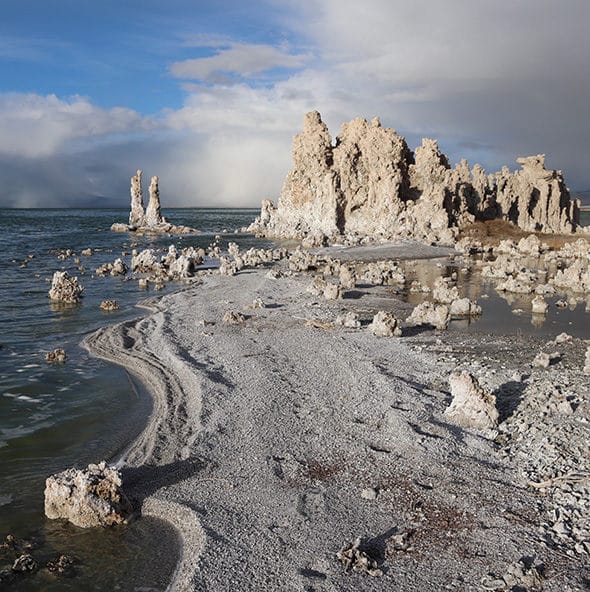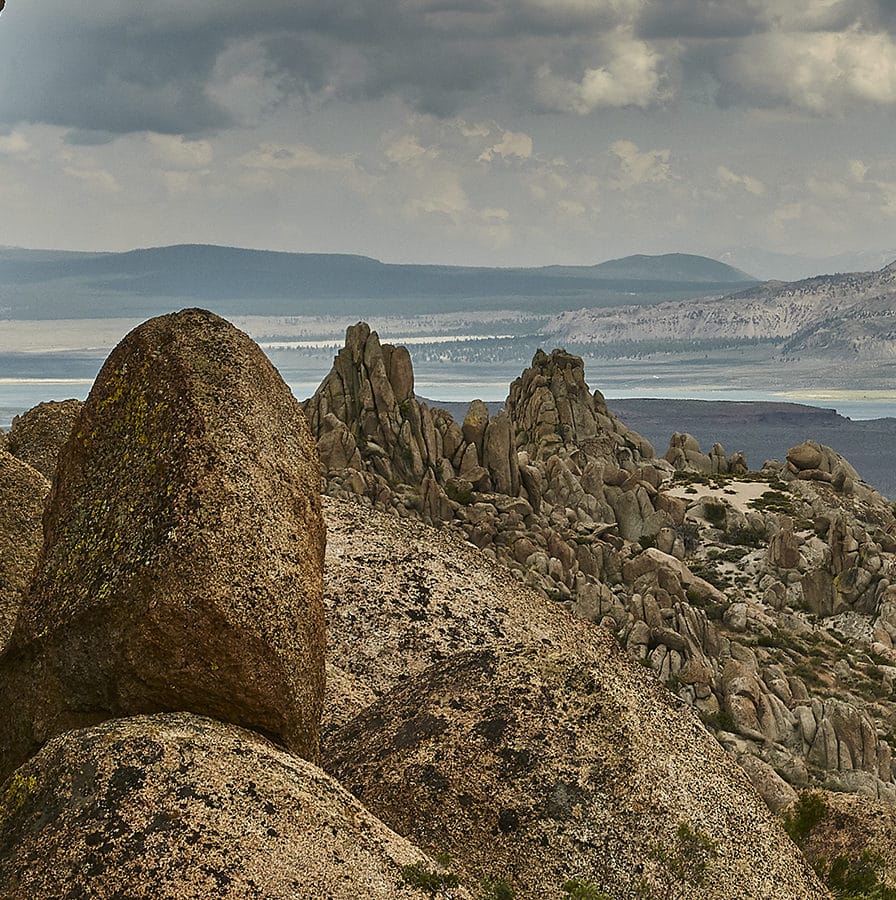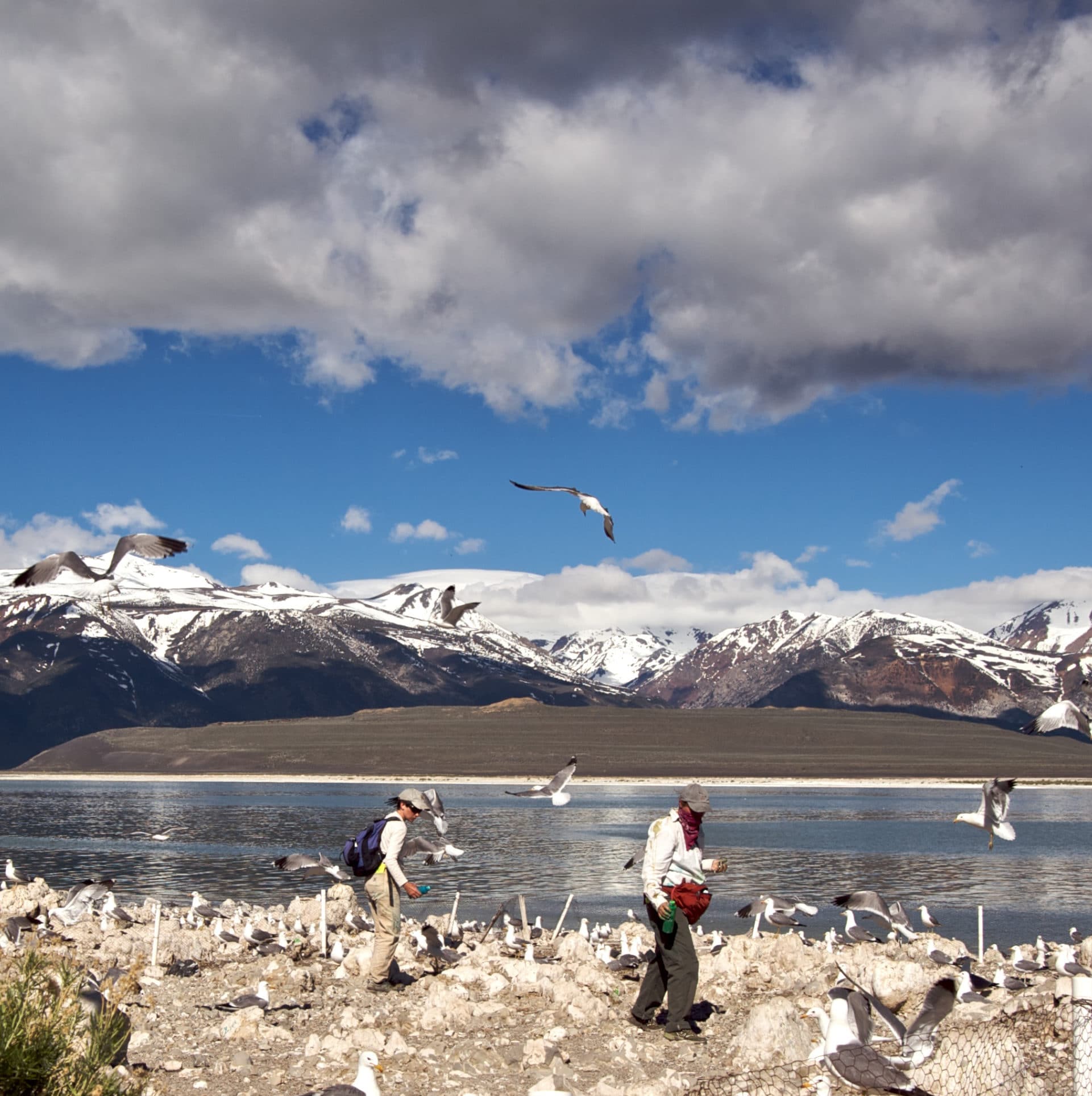
Strange water, strange towers
Mono Lake contains chlorides, carbonates, and sulfates; it is a chloride-carbonate-sulfate “triple water” lake. It is alkaline, with a pH of 9.8, and almost three times as salty as the Pacific Ocean. When it rises to 6392 feet above sea level Mono Lake will be slightly more than twice as salty as the ocean.
“The waters are clear and very heavy. When still, it looks like oil, it is so thick, and it is not easily disturbed. The water feels slippery to the touch and will wash grease from the hands, even when cold, more readily than common hot water and soap. I washed some woolens in it, and it was easier and quicker than any “suds” I ever saw. . . I took a bath in the lake; one swims very easily in the heavy water, but it feels slippery on the skin and smarts the eyes.”
–William Brewer, California Geological Survey, 1863
No way out
Why is Mono Lake water so salty? Mountains surround Mono Lake, forming a closed hydrological basin. Water flows into the lake, but it doesn’t flow out—the only way for water to leave Mono Lake is through evaporation. Four vertical feet of water can evaporate from Mono Lake during the course of a year, and without freshwater streams to replace the evaporated water there would be no lake. Freshwater streams and underwater springs have brought trace amounts of minerals into Mono Lake over the eons—those minerals do not evaporate, so they have built up in the lake for about 80,000 years. Because the lake has no outlet, it is naturally saline. An estimated 280 million tons of solids are dissolved within the lake, and it is 2-3 times saltier than the ocean depending on its water level fluctuation over the years. Periodic eruptions of volcanic ash have also added considerably to Mono Lake’s chemical mix.
The salinity of the lake is approximately 81 grams per liter (g/l). Mono Lake has been designated an Outstanding National Resource Water, which requires that the salinity be maintained under 85 g/l (Mono Lake’s salinity in May 1996 and November 1975). The lake’s average salinity levels have ranged from 42 g/l to 99 g/l since 1913. Under a full-diversion scenario, the average salinity would have been approximately 133 g/l. Click here for an analysis of mineral quality.
Great Basin chemistry
Mono Lake has a chemistry unique in all the world. Within Mono’s water is dissolved sodium salts of chlorides, carbonates, and sulfates (Mono Lake has a lot of salt and baking soda in it). In contrast, Great Salt Lake in Utah contains abundant chloride but almost no carbonates. Mono Lake is also rich in borate and potassium—boron concentrations among the highest ever recorded for a lake. Mono is one of the few remaining inland lakes in the Great Basin, a large geographical region in the Western United States with no outlet to the ocean. Mono Lake, Great Salt Lake, and Lake Abert in Oregon are the last few large hyper-saline lakes in the Great Basin that host productive ecosystems and large numbers of migrating birds.
A soap to be reckoned with
High concentrations of carbonates in Mono Lake make it very alkaline. The pH of Mono Lake is 9.8, which is roughly equivalent to the alkalinity of household glass cleaner. Because of this high alkalinity, Mono Lake water tastes bitter and feels slippery. Some observers claim it feels and behaves a lot like soapy water (sulfates and carbonates are a factor). William Brewer no doubt found this to be the case; however, you may not wish to repeat Mr. Brewer’s laundry experiment—Mono Lake water has a high enough pH to deteriorate clothing and footwear after repeated soakings.
A chemical jigsaw puzzle
For as much as we understand about Mono Lake’s chemistry, there is still much that we do not. Temperature, wind, climatic variations, underwater springs, and even biological activity can affect Mono Lake’s chemistry at different depths, locations, and seasons. We are only just beginning to understand the more subtle changes in the lake’s chemistry. A US Geological Survey scientist who had been studying Mono Lake chemistry for many years once remarked, “Every year there are new surprises.” With such a unique chemical signature, Mono Lake will no doubt continue to provoke scientific study.
Learn More
Top photo courtesy of Rick Kattelmann.



